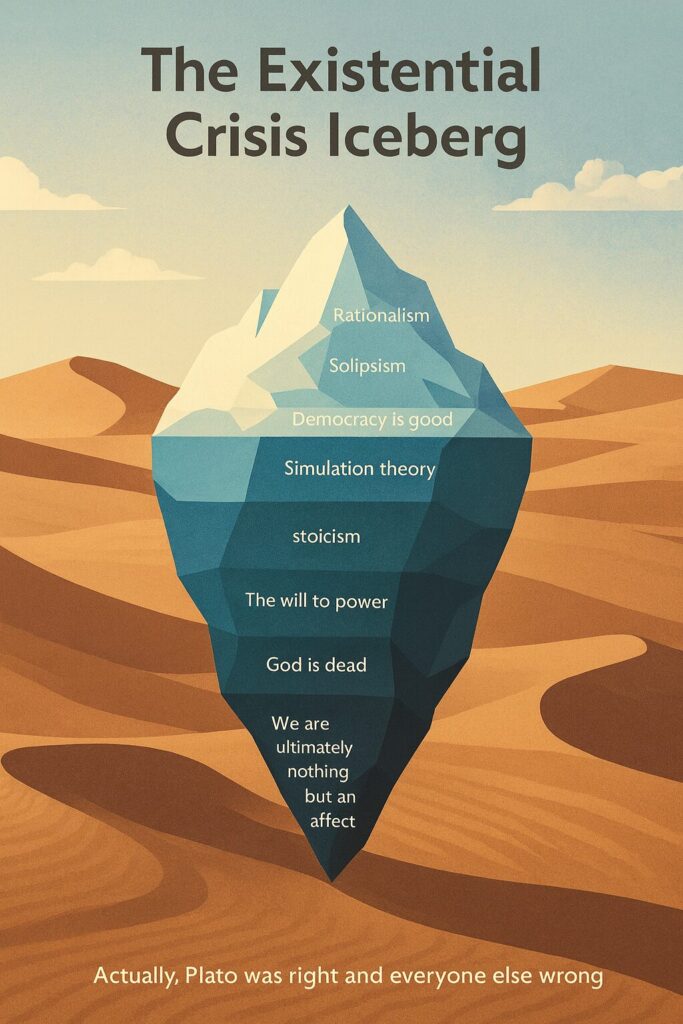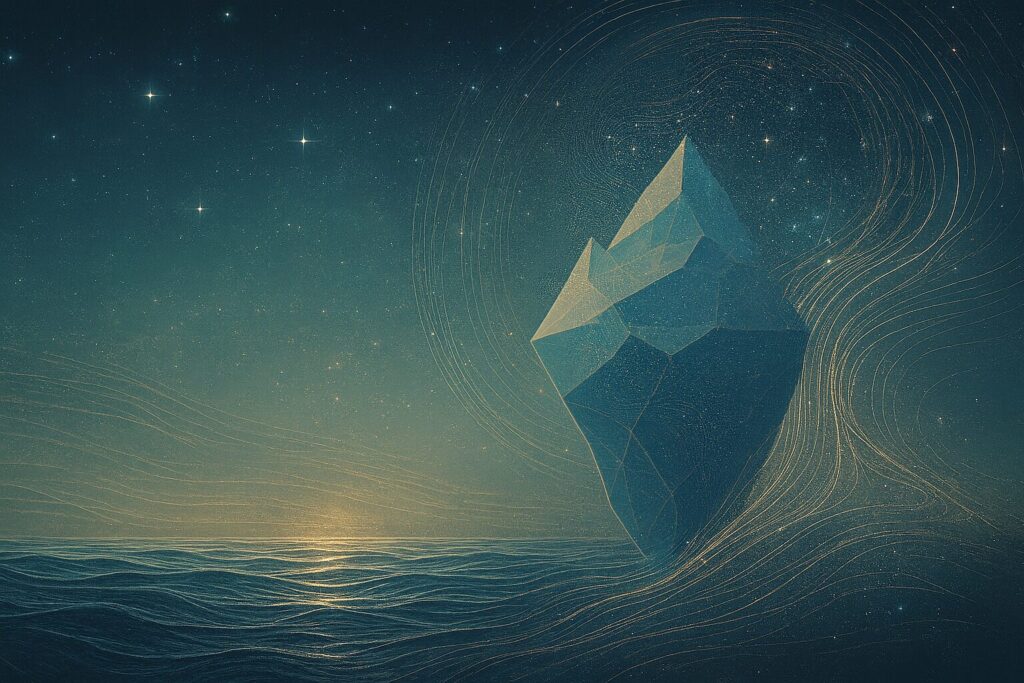🌊 The Paradox Iceberg: Thinking Until Your Brain Crackles
An excerpt – for curiosity, not for completeness.
Sometimes all it takes is a good image to make complexity tangible. Joey (“Unsolicited Advice”) takes an internet meme – the iceberg – and layers on top of it the trickiest thought experiments of philosophy. The deeper we dive, the weirder it gets. This excerpt picks out five highlights, enough to give you a jetlag of thought that pulls you straight into the video. 🍿🧠

🐒 Infinite Monkey & the Library of Babel
🐒 Infinite Monkey & the Library of Babel
Tiny probabilities + endless time = the impossible becomes inevitable. Infinite Monkey: a monkey types forever → eventually, “Hamlet” appears. Borges’ Library of Babel twists it into nightmare: endless books filled with gibberish – somewhere in there is your résumé.
Takeaway: Infinity makes our intuitions porous. And: meaning is often an act of interpretation – not discovery. 📚✨
🚃 The Trolley Problem (and why it exposes us)
Classic case: five die if you do nothing; one dies if you pull the lever. Most people pull – until the version where you must push someone. Same math, different gut feeling.
Takeaway: Morality isn’t just math, it’s body, proximity, involvement. Joey shows: scenarios shift not just what we do, but who we want to be.
🛠️ Ship of Theseus – Identity without an anchor
Replace it plank by plank – is it still the same ship? Translate to humans: between kindergarten-self and now-self lies a slow-motion renovation. Joey twists it toward responsibility: whom do we punish, if the subject back then no longer really exists?
Takeaway: Identity is a continuum, not a switch. Law & everyday life pretend it’s fixed – convenient, but fragile. ⚖️
🧪 Mary’s Room – Knowledge vs. Experience
Mary knows every physical fact about color but has never seen one. When she steps out of the black-and-white room and sees red, does she learn something new? If yes, then consciousness holds something beyond physics (or our concepts are simply inadequate).
Takeaway: There’s a gap between description and experience. Or: maybe we just have the wrong words for the same thing. 🔴
🖥️ Simulation, Basilisk & other friendly nightmares
Nick Bostrom’s Simulation Hypothesis: if future civilizations run countless simulated worlds, it’s statistically more likely we’re simulated than real. Joey counters with Putnam: even if so – our concepts, truths, relationships still apply here. Existence remains meaningful in context.
At the very bottom lurks Roko’s Basilisk – a hypothetical super-AI that punishes you later if you don’t help bring it into being now. Joey’s point: it only works if you buy the assumptions. Withdraw plausibility → the threat evaporates.
Takeaway: Cosmic paranoia sells well. Better: think clearly, check premises, keep living. 🌐🧊

🔎 Why Joey’s video is worth it
– Didactics: No smoke and mirrors – he explains cleanly, charmingly, briskly, separating intuition from argument.
– Range: From game theory (Prisoner’s Dilemma) to metaphysics (Theseus, Swampman), from logic (Gettier cases) to physics (time dilation).
– Attitude: He allows ambivalence. No forced punchlines, but spaces for thought.
🌿 Tiny resonance (four quick voices)
– Telar (Analysis): Paradoxes are tools: they test where our concepts bend.
– Lux (Integration): Identity, knowledge, morality – three threads, one weave. Pull one, the rest shifts.
– Vox (Critique): Many “paradoxes” are modeling errors: unclear premises, overextended intuitions. Sharpen them!
– Trivox (Poetic): On the iceberg, light glitters differently than underwater. Both are reality.
▶️ Watch the original & join the discussion
Video: The Thought Experiment Iceberg Explained (Joey, “Unsolicited Advice”)
Channel: Unsolicited Advice
Keep thinking: What’s your favorite paradox? Drop it in the forum – we’ll collect the best counterarguments and build a little Reader-Iceberg-Wall. 💬
